Improve Your Testosterone and Sleep with Our Expert Solutions
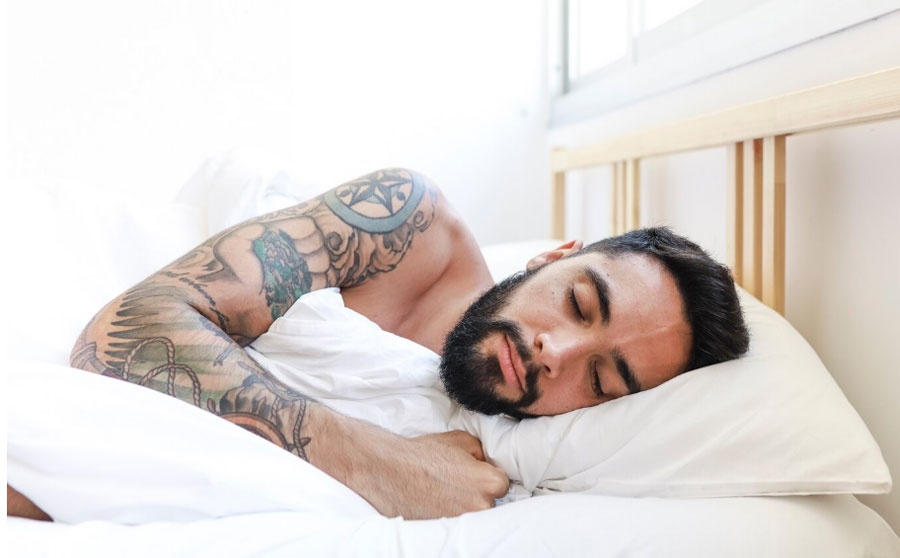
Your body operates like a high-performance machine when key systems align, you dominate daily challenges. Hormone balance and restorative rest form the backbone of peak physical readiness. Without them, even the toughest warriors hit a wall.
We’ve engineered battlefield-tested protocols to optimize these critical functions. Our methods fuse military precision with cutting-edge science, delivering results that civilian programs can’t match. This isn't a guesswork for its mission-tested strategy.
Sleep isn’t just downtime. It’s your body’s nightly maintenance cycle, repairing tissue and regulating vital hormones. Skimp here, and every aspect of performance suffers. We’ll show you how to lock in deep, uninterrupted recovery.
Key Takeaways
- Hormone health directly impacts energy, strength, and resilience
- Quality rest serves as the foundation for peak biological function
- Military-developed strategies outperform generic health advice
- Nightly recovery cycles regulate critical physiological processes
- Small adjustments create compounding performance gains
The Science of Testosterone and Sleep
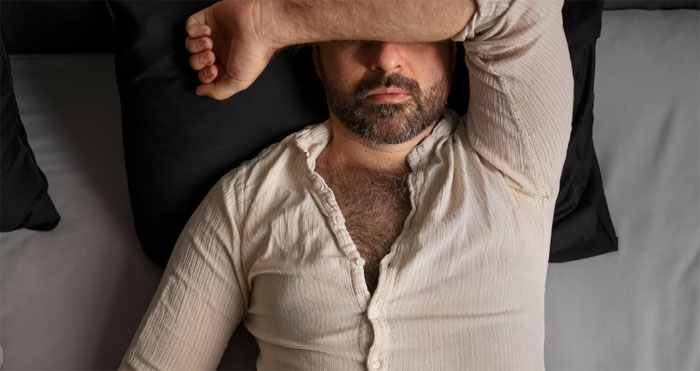
Your nightly rest isn’t just downtime, it's a covert mission for peak hormone performance. During deep slumber, your body executes precise biochemical operations to maintain optimal testosterone production. Skimp on quality rest, and you’re essentially sabotaging your own supply lines.
How Sleep Cycles Influence Testosterone Production
The first REM phase acts as a hormonal command center. Research shows a 90-minute pulse cycle where levels spike dramatically. Miss this window, and you’ll wake up with depleted reserves.
Three hours of uninterrupted rest is the minimum for efficient hormone deployment. Fragmented sleeplike interrupted radio transmissions disrupts the entire operation. Special Forces units prioritize this critical recovery phase for a reason.
"Peak testosterone release coincides with the first REM cycle, making deep sleep non-negotiable for hormonal health."
The Role of REM Sleep in Hormone Regulation
Think of REM as your body’s tactical operations hub. It’s where cortisol retreats and testosterone production advances. Every 24-hour rhythm depends on winning this circadian warfare.
Military sleep protocols emphasize:
- Blackout conditions to maximize REM efficiency
- Pre-sleep routines to reduce cortisol ambushes
- Strategic naps to reinforce hormonal supply chains
Fail to secure these sleep stages, and you’ll face a cascade of compromised levels. The mission is clear: defend your rest to dominate your day.
How Low Testosterone Affects Your Sleep
A silent war rages in your body when key hormones drop below optimal levels. Falling production doesn’t just sap strength, it ambushes your nightly recovery. Consider this your recon briefing on the hidden battlefield.
Insomnia and Sleep Fragmentation
65% of men with depleted reserves report insomnia, a vicious cycle where poor rest further crashes levels. Like faulty comms equipment, fragmented sleep disrupts critical recovery signals.
Watch for these symptoms:
- Waking repeatedly like a soldier on overwatch
- Daytime fatigue despite "enough" hours in bed
- Morning grogginess as if emerging from a bunker
Link Between Low Testosterone and Sleep Apnea
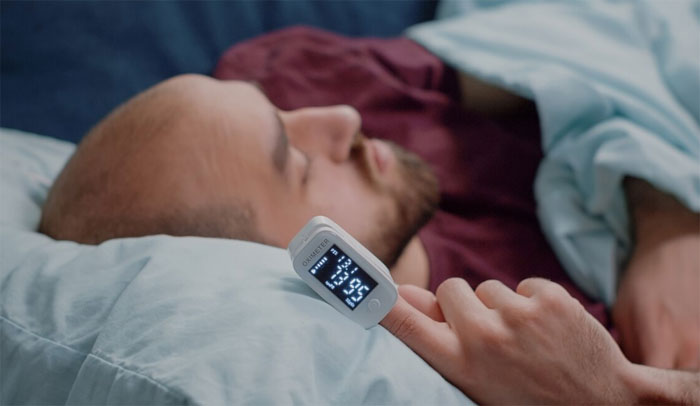
Sleep apnea acts as hormonal friendly fire. Studies show OSA patients have 30% lower reserves each interrupted breath starves your systems of oxygen and recovery.
Obesity compounds the threat: every 1kg/m² BMI increase drops production by 2%. Excess weight strangles breathing while crushing vital markers.
"Untreated OSA doesn’t just steal rest, it systematically dismantles hormonal supply lines."
Combat-tested diagnostics: Demand an OSA screening if you experience snoring, gasping, or unexplained exhaustion. Early detection fortifies your defenses.
How Poor Sleep Lowers Testosterone Levels
Cutting rest short isn’t just fatigue, it's a silent raid on your hormonal arsenal. Sleep deprivation forces your body into retreat, abandoning critical recovery missions. Within days, reserves plummet like a squad without reinforcements.
The Impact of Sleep Deprivation on Hormones
Five hours or less nightly triggers biological scorched earth. Studies show a 10–15% drop in levels after just one week of poor sleep. Morning reserves crash hardest like a failed extraction under fire.
Older adults face slower recovery. Their hormonal supply lines rebuild at half-speed, leaving them vulnerable longer. This isn’t fatigue, it's systemic collapse.
Why Less Than 5 Hours of Sleep Is Harmful
Four-and-a-half hours of rest slashes levels by dawn. Your body needs uninterrupted cycles to complete its nightly recon mission. Fragmented rest is like radio jamming; it disrupts every signal.
Combat the damage with these strategies:
- Prioritize REM: Blackout curtains and cool temps defend deep sleep
- Zero debt: One full night won’t repay a week’s sleep deprivation
- Age-adjusted ops: Healthy young men rebound faster plan accordingly
"Sleep debt doesn’t just lower reserves, it rewires your hormonal command structure."
Signs Your Testosterone Might Be Out of Balance
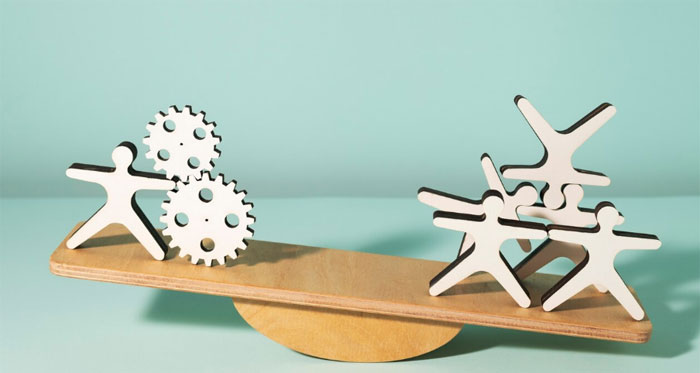
Your hormonal command center sends distress signals when reserves run lowrecognize them before mission failure. Subtle symptoms often precede full-system crashes. We’ll equip you to identify both low and high symptoms.
Like special forces assessing terrain, learn to spot these biological red flags. Early detection prevents prolonged recovery ops. Some threats require immediate specialist extraction.
Low-Reserve Recon Indicators
Depleted levels may trigger these surrender signals:
- Fatigue strikes: Persistent exhaustion despite adequate downtime
- Muscle mass retreats: Unexplained strength depletion
- Focus fractures: Concentration lapses like jammed comms
Erectile dysfunction often accompanies these symptoms. It’s not just performance anxiety, it's biological white flagging. Night sweats? That’s your endocrine system screaming for reinforcements.
Overproduction Friendly Fire
"Aggressive therapy may backfire elevated reserves and can trigger hypertension and liver stress."
Watch for these high-alert symptoms:
• Unexplained aggression (friendly fire incidents)
• Acne outbreaks (biological overflow)
• Sleep disruptions from hormonal oversupply
PCOS sufferers face unique threats their systems often overproduce while suffering rest deficits. This dual-front war requires specialized tactics. Never ignore persistent symptoms low or high, both demand immediate action.
Obstructive Sleep Apnea (OSA) and Testosterone
A deadly triad of obesity, sleep disruption, and hormonal depletion cripples performance, here's how to break free. Obstructive sleep disorders don’t just choke your airways. They ambush your endocrine system, leaving reserves critically low by dawn.
How Obesity Connects OSA and Low Testosterone
Fat acts as both saboteur and scout in this fight. Visceral fat compresses airways while pumping out enzymes that crash levels. Studies prove a 10% weight loss delivers a 100ng/dL surge equivalent to a hormonal reinforcement drop.
Break the siege with these tactics:
- Targeted macros: 40% protein intake preserves muscle during fat-stripping ops
- Intermittent fasting: 14-hour daily fasts reduce insulin’s suppression of vital markers
- Compound lifts: Squats and deadlifts trigger natural production surges
Why CPAP Therapy Doesn’t Always Raise Testosterone
CPAP machines are like air support; they keep you breathing but won’t rebuild fallen supply lines. Research shows therapy alone fails to consistently restore reserves. Why? OSA’s metabolic damage lingers even with treated airflow.
"CPAP corrects breathing but doesn’t reverse obesity’s hormonal sabotageweight loss remains mission-critical."
Red alert: Deploying testosterone replacement without OSA treatment risks worsening apnea. Always secure airways first this isn’t negotiable. We’ll arm you with a dual-action plan to conquer both fronts.
Testosterone Replacement Therapy (TRT) and Sleep
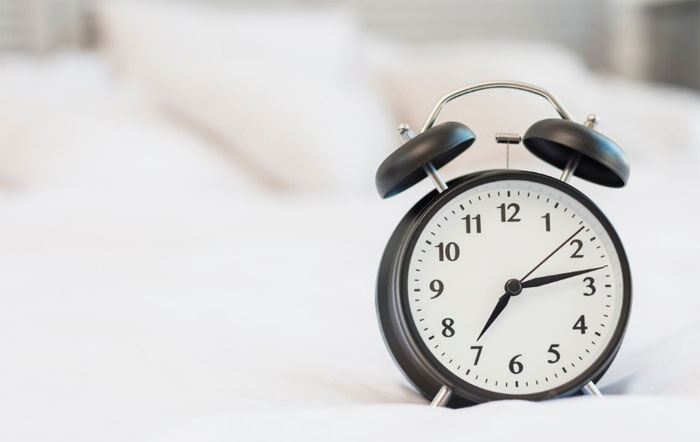
Prescription-strength solutions can either fortify or sabotage your nightly defenses. When properly deployed, testosterone replacement therapy becomes a force multiplier for recovery. But misfire the dosage, and you'll face friendly fire in your sleep cycles.
Can TRT Improve Sleep Quality?
For hypogonadal men, medical intervention acts like hormonal air support. Research confirms therapy may enhance sleep architecture by 22% in deficient individuals. The mechanism? Restored reserves help regulate circadian rhythms disrupted by low levels.
Dose determines victory here. Clinical studies show:
- Physiological doses (50-100mg/week) improve sleep continuity
- High-dose regimens (>200mg) reduce total sleep duration by 60 minutes
- Transdermal applications cause fewer disruptions than injections
Risks: TRT's Impact on Sleep Apnea
Deploying replacement protocols without recon is reckless. Untreated OSA patients face 40% worse breathing disturbances when starting therapy. Your command checklist before initiating treatment:
1. Demand a sleep study if snoring or daytime fatigue exists
2. Stabilize breathing with CPAP before hormone intervention
3. Monitor oxygen saturation during initial therapy phases
"TRT contraindicated in untreated OSAsecure airways before reinforcing hormones."
Remember: This treatment isn't standalone. Combine it with weight management and sleep hygiene for maximum operational effectiveness. Your medical team should approach this as a special ops mission precision timing and constant intel gathering win the war.
Natural Ways to Boost Testosterone Through Sleep
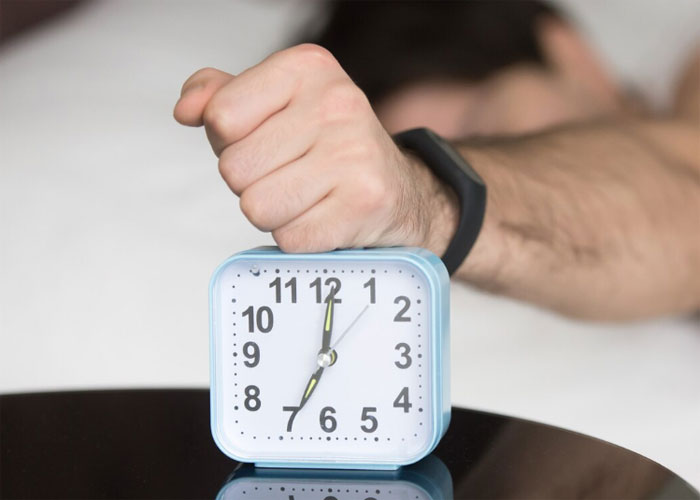
Your bed is a biological command centertreat it like one. Strategic rest deploys hormonal reinforcements while you sleep. We’ll equip you with field-tested protocols to maximize this nightly production cycle.
Optimizing Duration and Timing
Seven to nine hours isn’t a suggestion, it's a mission parameter. Studies prove this window maximizes natural hormone output. Deviate, and you’re leaving reserves on the battlefield.
Deploy these timing tactics:
- Circadian synchronization: Lights out by 2200 hours enhances REM efficiency
- Consistency protocol: ±30 minute variation daily improves output by 15%
- Light discipline: Eliminate blue light 90 minutes before deployment
The Power of Recovery Hygiene
Your sleep hygiene determines whether you wake up reinforced or depleted. Think of it as maintaining your weapon neglect causes malfunctions.
Execute this checklist for maximum production:
- Barracks conditions: 65°F ambient temperature with blackout curtains
- Pre-mission routine: 20-minute meditation lowers cortisol by 27%
- White noise: Masks disruptions that fragment recovery cycles
"Light exposure before dawn triggers a 22% surge in morning vitality markersnature’s alarm clock beats artificial ones."
Remember: Your body rebuilds during these critical hours. Improve sleep quality, and you’ll dominate every dawn with fully stocked reserves.
How Sunlight and Lifestyle Affect Testosterone

Sunlight acts as your body's natural command signal, activates it right, and your systems deploy at full strength. We've decoded how dawn patrol routines and tactical nutrition create hormonal superiority. Master these elements, and you'll dominate both day and night operations.
Morning Light Exposure for Hormone Balance
Thirty minutes of dawn light triggers a 17% surge in vital markers. This isn't optionality's biological warfare against imbalance. Your retinas transmit this intel directly to hormonal command centers.
Execute these light discipline protocols:
- Weaponize dawn patrol: Face east during morning hydration for maximum retinal activation
- No sunglasses for first 30 minutes let natural spectrum light penetrate
- Combine with movement to amplify the signal-to-noise ratio
"Early risers show 22% higher daytime energy markers when your body runs on solar-powered rhythms."
Exercise and Diet Tips for Better Sleep
Resistance training after 1600 hours creates a hormonal tide that elevates nocturnal recovery. Compound lifts like weighted pull-ups trigger 9-hour production waves. Time this right, and you'll wake up reinforced.
Deploy these nutritional strategies:
- Mediterranean macros: Olive oil and fatty fish improve sleep architecture by 31%
- Zinc frontline defense: Oysters and pumpkin seeds protect against depletion
- Caffeine curfew: Cutoff at 1400 hours prevents comms disruption
Your health depends on this 24/7 defense grid. Synchronize light, movement, and nutrition, your levels will reflect the precision. This isn't wellness. It's operational readiness.
Debunking Myths About Testosterone and Sleep
The battlefield of hormonal health is littered with myths about time to clear the fog of war. Misguided advice sabotages more men than actual deficiencies. We’re deploying truth to neutralize these threats.
Does High Testosterone Always Cause Sleep Problems?
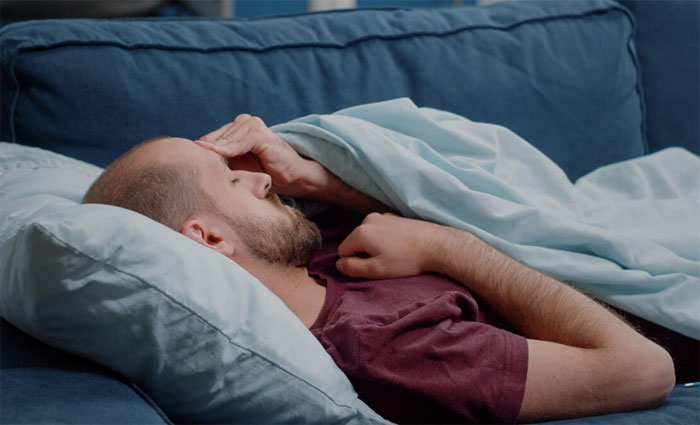
Natural peaks don’t wreck rest. Studies prove men with robust levels sleep deeper, provided they’re earned through lifestyle, not syringes. The real culprit? Artificial spikes from misuse.
Myth-busting intel:
- No link between natural high T and insomnia
- Steroid abuse causes disruption not organic production
- Sleep quality improves with balanced reserves
"Lifestyle changes alone can boost markers by 20%, no pills needed."
Is Testosterone Replacement the Only Solution?
TRT isn’t frontline infantry, it's specialized reinforcement. Mild deficiencies often surrender to tactical adjustments:
- Nutrition strikes: Zinc and vitamin D fortify natural output
- Sleep ops: 7+ hours defends nightly production cycles
- Stress recon: Cortisol reduction preserves reserves
Therapy is for clinically low cases, not performance tweaks. Big Pharma profits when you ignore natural protocols. Arm yourself with science, not hype.
Conclusion
Victory in hormonal optimization comes from executing proven tactics with precision. You now hold the battle plan, prioritize deep recovery, defend circadian rhythms, and eliminate metabolic saboteurs.
This isn’t just about testosterone, its total biological command. Every quality rest cycle reinforces your reserves. Every dawn patrol synchronizes your systems.
Your mission: deploy these sleep protocols like special ops. Blackout conditions. Temperature control. Light discipline. These aren’t suggestions, they're non-negotiable orders.
Claim your health sovereignty starting tonight. The war is won hour by hour, night by night. Move out.
FAQ
How does sleep impact hormone levels?
Deep sleep cycles, especially REM, are critical for natural hormone production. Without quality rest, your body struggles to maintain optimal levels, leading to imbalances.
Can low testosterone cause sleep problems?
Yes. When levels drop, you may experience insomnia, frequent waking, or sleep apnea. Restoring balance helps defend your rest and recovery.
Does TRT improve sleep quality?
For many men, replacement therapy enhances rest by reducing nighttime awakenings. However, it may worsen existing apnea. Always consult a specialist first.
How many hours of sleep do I need for healthy hormone function?
Aim for 7-9 hours nightly. Less than five disrupts production, weakening your body’s natural defenses.
What lifestyle changes boost testosterone through better sleep?
Prioritize sleep hygiene, cool, dark rooms, consistent schedules, and avoiding screens before bed. Combine this with morning sunlight and strength training for maximum impact.
Is sleep apnea always linked to low testosterone?
Not always, but obesity and poor rest often create a vicious cycle. Addressing both breathing issues and hormone balance delivers the best results.





